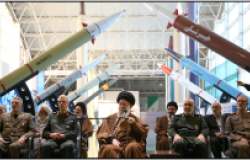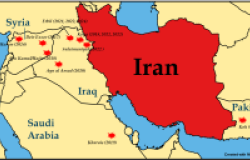Thinking Strategically about Terrorist Travel
with Stewart A. Baker, Assistant Secretary for the Office of Policy Directorate, Department of Homeland Security
Overview
This event was co-sponsored by the Woodrow Wilson Center (International Security Studies and Middle East Programs), the Council on Global Terrorism, and Georgetown University's Center for Peace and Security Studies.
Assistant Secretary Baker stated that successful policies pursued by the United States and the international community in two key areas – terrorist communication and financing – provide the backdrop to the current debate about terrorist travel. As a consequence of these post-9/11 initiatives, terrorists are now reluctant to communicate regularly by phone and to transfer funds through wire transfers and other banking methods. As Baker put it, for a terrorist to do so is "bad for his career and probably for his health."
In lieu of electronic communications, terrorist groups are increasingly utilizing the pre-modern mode of couriers to convey information and funds. But these couriers still rely primarily on 21st century modes of transportation, especially air travel. These individuals are not carrying weapons (since they must pass through airport screening) and they are probably traveling alone rather than in a group so as not to attract attention. Once they land at an airport, they must pass through a final line of defense -- national controls -- before entering the United States or some other country.
Baker addressed the question why terrorists think it is safer to travel than to communicate by phone. He noted that on a daily basis some 1 million visitors come in to the United States. Within that large group, those that constitute a threat to homeland security constitute less than .01%; the daunting challenge is to distinguish that miniscule group from the other 99.99%.
The starting point, Baker argued, has been U.S. efforts to upgrade the information on visitors through improved visas. A major issue regarding visas, however, is that many countries (Western Europe, Japan, among others) participating in the reciprocal visa waiver program with the United States also have small populations of individuals hostile to the United States. Indeed, Al Qaeda has sought to recruit such nationals to circumvent U.S. efforts. Improved information-gathering and sharing allows the United States and its partners to select an individual of interest while the jet is en route.
The other key component of the strategy is methods to ensure accurate identification. Procedures are now in place to reduce the chances of passport misuse through theft or fraud. For example, the countries participating in the visa-waiver program now have a system to ensure that a stolen passport is swiftly posted online before it can be employed by a terrorist at a border crossing. In addition, the increased adoption of biometrics in passports by the United States, Japan, and the European Union is a powerfully important technological innovation for "locking in identification," according to Stewart. The United States alone now has a database with some 100 million fingerprints.
The United States has worked with its European and other partners to reduce concerns about the threat to privacy posed by these new technologies and policies. Stewart stated that the United States offered assurances about the use of data collected to partner governments and made an effort to justify these programs to European audiences. The European Union is starting its own program on airline reservation data very similar to that in operation in the United States.
Hosted By

Middle East Program
The Wilson Center’s Middle East Program serves as a crucial resource for the policymaking community and beyond, providing analyses and research that helps inform US foreign policymaking, stimulates public debate, and expands knowledge about issues in the wider Middle East and North Africa (MENA) region. Read more
Thank you for your interest in this event. Please send any feedback or questions to our Events staff.










